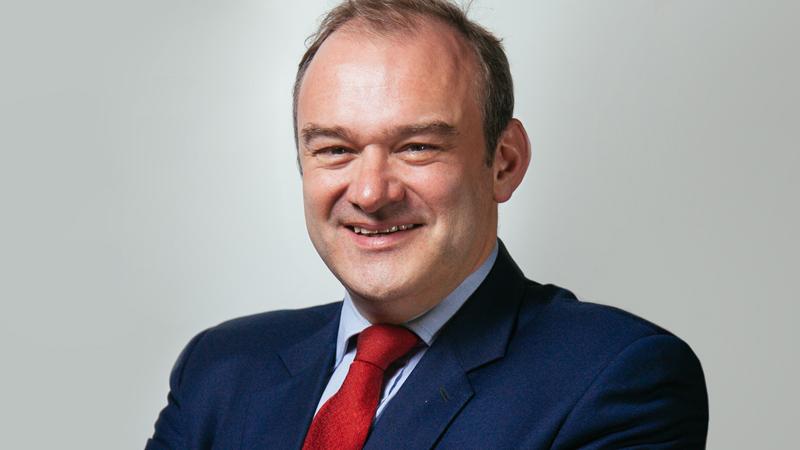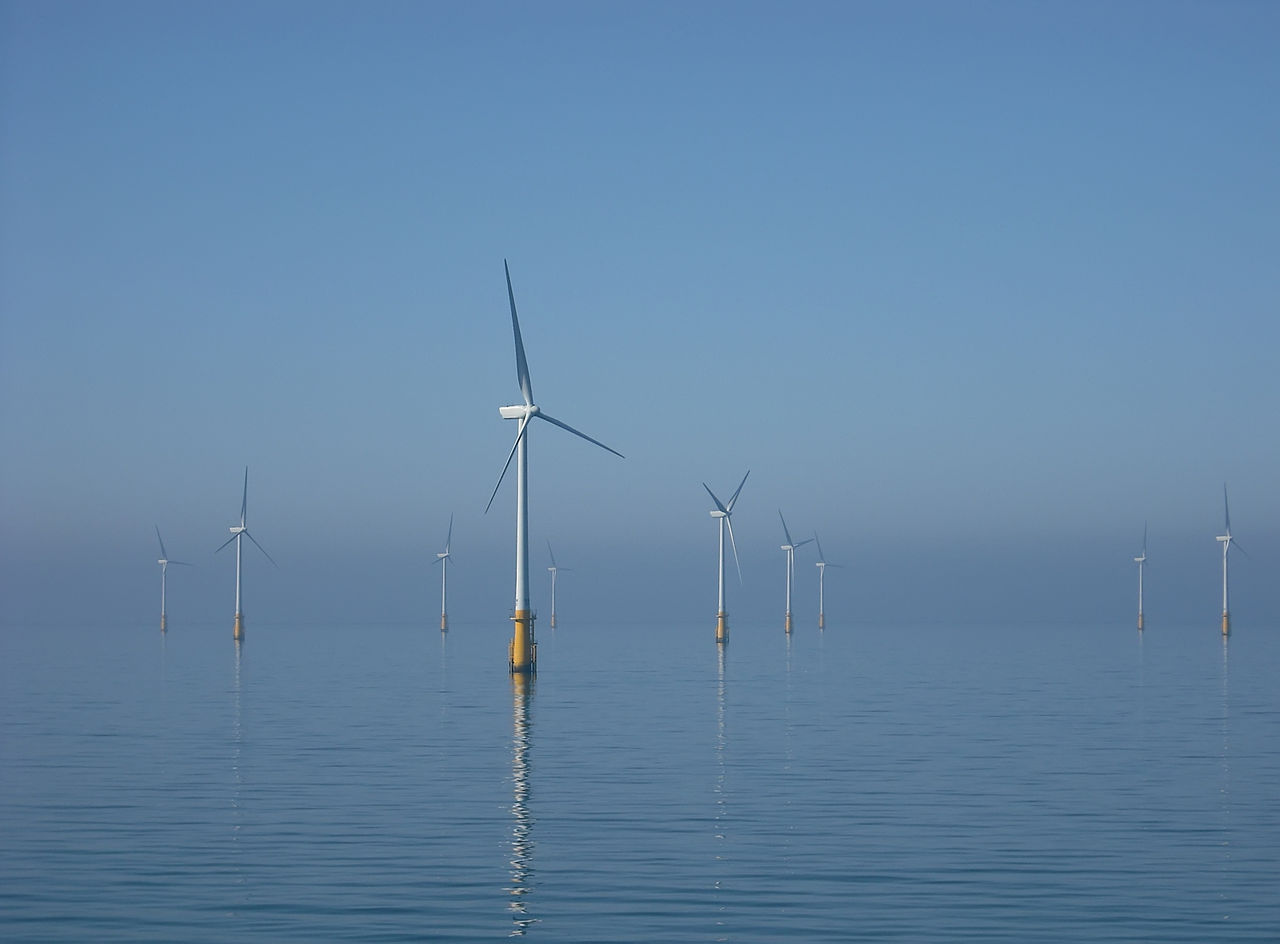Ed Davey MP: Labour ‘completely wrong’ to say renewables investment has stalled

A row has broken out over the level of investment in clean energy during parliament’s last term between Ed Davey, the secretary of state for energy and climate change, and Labour’s shadow environment secretary Caroline Flint.
At the Greener Britain Hustings last night Flint asked Davey to explain how 2014 investment in renewables was at the same level as it was in 2009, according to Bloomberg New Energy Finance (NEF), to which Davey replied (twice) “You’re just completely wrong”.
Davey spoke about a new DECC (Department of Energy and Climate Change) report which shows over £40bn invested in low carbon energy investment since 2010.
He insisted this would prove that the figures Labour are using are “completely false”. Davey recently said the government’s boost to renewables fulfilled the “greenest government ever” promise.
The Bloomberg NEF figures from last year did, however, show a drop in UK investment in clean energy from the third quarter of 2013 from $3.1 billion to $789 million in the same period in 2014 – which it said was as a result of policy uncertainty for the clean energy sector.
Decarbonisation target disputed
The heated disagreement came in response to a discussion about Labour’s energy price freeze promise. The BBC’s Tom Heap, who was chairing the event, asked how compatible the freeze would be with bringing renewables online.
Flint replied that she did not see “any contradiction between playing fair by energy consumers – who have been ripped off by these big energy companies, the Big Six – and having a clean energy generation future.
“What renewable energy organisations – and those that want to invest in renewables – say to me is that clarity on decarbonisation is more important.”
Also read:
- Siemens say offshore wind could be one third cheaper with commitment to decarbonisation
- 6 charts that show how the UK can phase out coal without raising bills
- Government renewables subsidies show costs falling
Davey spoke of the many “chunky measures” his party have managed to implement while in government – such as the 2030 package in Europe, which he said was “far more powerful for investors than a UK-only power sector decarbonisation target”.
He also insisted that his government’s reported £40bn clean energy investment “would not have happened” with an energy price freeze.
The Contracts for Difference competitive auction for renewables subsidies also took place recently, giving subsidies to offshore and onshore wind and solar farms.

Prime Minister David Cameron said a year ago that a decarbonisation target was “extremely unwise” due to its power to rule out fossil fuelled electricity and carbon capture and storage – which Conservative secretary of state for environment, food and rural affairs, Liz Truss, also present at the event, said had attracted £1bn of investment in this parliament.
A decarbonisation target – touted as the best way to provide clarity to the renewable energy industry on future investments, and Lib Dem party policy at the time – was narrowly defeated in the house of Lords last year.
Fracking “lower carbon” than LNG imported from Qatar
In another heated discussion, this time on fracking, Ed Davey said that home grown shale gas would be lower carbon than LNG imported from Qatar – “an argument not often heard”.
Caroline Lucas, Green Party MP, took the hardest line on fracking (she was arrested at an anti-fracking protest in 2013 but was cleared of all charges), saying that we cannot be serious about tackling climate change while setting up a whole new fossil fuel industry.
She argued that there is no chance of shale gas replacing coal – the highest CO2-emitting fossil fuel which would need to be phased out by 2025 – just as shale was coming online, and that “falling over ourselves with subsidies to set up a whole new industry” meant we could not be serious about our commitments on climate change.
EU exit, onshore wind, NIMBYs and airports

Led by questions pre-submitted by audience members and taken from Twitter, a number of energy and climate issues were discussed at the hustings, ranging from the impact on of an EU exit on clean tech investment, aviation expansion and NIMBYism – as it related to local groups fighting both fracking and onshore wind projects.
Flint made it clear that she supported onshore wind, and was wary of “small groups who are more confident ending up suggesting they can speak for whole communities”.
Davey said he was disappointed in some of Pickles’ decisions in local planning, and Truss cited the success of Wytch Farm’s onshore oil projects, which had significant local support.
She also voiced support for rooftop solar, having famously said the sight of solar panels – albeit in open fields – made her “heart sink”.

